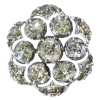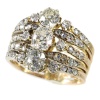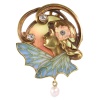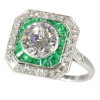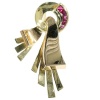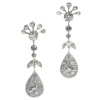Nous offrons des facilités de paiement pour le bijou de vos rêves. Demandez nous les détails. Expédition assuré gratuite !
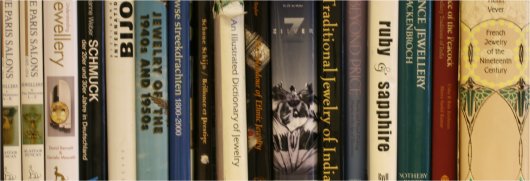
Antique jewelry glossary
Welcome to our extensive antique jewelry glossary with around 1,500 jewelry related entries.If you feel you are missing an explanation, feel free to let us know and we will add it.
A - B - C - D - E - F - G - H - I - J - K - L - M - N - O - P - Q - R - S - T - U - V - W - X - Y - Z all
Demeter
In Greek mythology Demeter (Greek: possibly "distribution-mother" from the noun of the Indo-European mother-earth *dheghom *mater) is the goddess of grain and fertility, the pure nourisher of the youth and the green earth, the health-giving cycle of life and death, and preserver of marriage and the sacred law. She is invoked as the "bringer of seasons" in the Homeric hymn, a subtle sign that she was worshipped long before she was made one of the Olympians. The Homeric Hymn to Demeter has been dated to about the seventh century BC. She and her daughter Persephone were the central figures of the Eleusinian Mysteries that also predated the Olympian pantheon.
Her Roman equivalent is Ceres, from whom the word "cereal" is derived.
Demeter is easily confused with Gaia or Rhea, and with Cybele. The goddess's epithets reveal the span of her functions in Greek life. Demeter and Kore ("the maiden") are usually invoked as to theo ("The Two Goddesses"), and they appear in that form in Linear B graffiti at Mycenaean Pylos in pre-classical times. A connection with the goddess-cults of Minoan Crete is quite possible.
According to the Athenian rhetorician Isocrates, the greatest gifts which Demeter gave were cereal (also known as corn in modern Britain), which made man different from wild animals; and the Mysteries which give man higher hopes in this life and the afterlife.
See also: Olympian gods
From: Wikipedia



